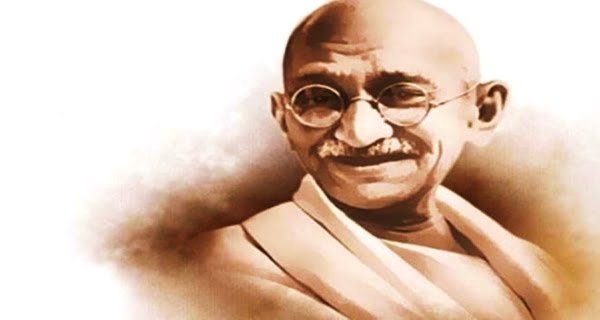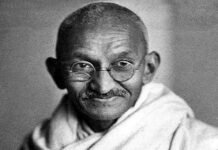
Mahatma Gandhi, the father of Indian independence and a global icon of peace and non-violence, continues to resonate deeply in the 21st century. Despite the passage of time, his principles remain as relevant, if not more so, in today’s world, where societies grapple with increasing political divisions, violence, inequality, and environmental degradation. Gandhi’s message of truth, non-violence, and ethical leadership offers a roadmap to navigate these challenges, making him a timeless figure whose teachings are vital for addressing modern issues.
1. Non-Violence (Ahimsa): A Response to Global Conflicts
In a world plagued by conflict, war, and terrorism, Gandhi’s unwavering commitment to non-violence (Ahimsa) is more relevant than ever. From regional wars to internal strife, violence has become a common response to disagreement and division. Gandhi’s principle of Ahimsa, which advocates resolving conflicts without harming others, offers a powerful alternative to the widespread use of force.
His approach proved successful during the Indian independence movement, where Gandhi mobilized millions without resorting to violence. Today, his philosophy could serve as a blueprint for conflict resolution in regions like the Middle East, Ukraine, and Africa. Diplomatic engagement, peaceful protests, and non-violent resistance are tools that can replace violent methods of resolving disputes, creating lasting peace instead of perpetuating cycles of destruction.
2. Satyagraha: The Power of Truth and Resistance
Gandhi’s concept of Satyagraha which means “truth force” champions the idea of standing up for justice and truth without compromising on moral integrity. In today’s global political climate, where misinformation, fake news, and manipulation of facts are rampant, the importance of truth in public life cannot be overstated. Gandhi believed that truth was not only a personal virtue but a fundamental necessity for justice and peace in society.
The practice of Satyagraha could counter the erosion of truth in politics, journalism, and social discourse. It encourages people to hold their leaders accountable, protest injustice peacefully, and demand transparency in governance. Social movements such as Black Lives Matter and the fight against climate change reflect the spirit of Satyagraha, where the masses rally peacefully for systemic change.
3. Economic Equality and Social Justice: Gandhi’s Vision of Sarvodaya
Economic inequality has widened significantly across the globe, with wealth increasingly concentrated in the hands of a few, while millions struggle with poverty. Gandhi’s vision of Sarvodaya the welfare of all promoted economic justice, equitable distribution of wealth, and self-sufficiency. He was a firm believer in reducing the economic divide, advocating for an economy based on need rather than greed, which he referred to as a “trusteeship” model.
Gandhi’s ideas resonate with today’s calls for economic reforms to address income inequality, provide universal basic income, and promote sustainable development. He believed that wealth should be used for the common good rather than personal indulgence. His concept of trusteeship challenges the rampant consumerism and exploitation that have led to the global environmental crisis and vast socioeconomic disparities. Today, leaders and corporations can look to Gandhi’s economic philosophies to create a more just and sustainable world economy.
4. Environmental Sustainability: Gandhi’s Call for Simple Living
The world today faces an unprecedented environmental crisis, with climate change, deforestation, and pollution threatening life on Earth. Gandhi, with his emphasis on simple living and self-reliance, preached a lifestyle that aligned with nature. He warned against the dangers of industrialization and unchecked consumerism, advocating instead for living within one’s means and minimizing environmental impact.
Gandhi’s principle of living simply so that others may simply live is a profound call for today’s environmental movements. His ideas of sustainability, decentralization, and respect for nature are echoed in modern environmental advocacy for renewable energy, conservation, and reducing the carbon footprint. His words offer guidance in the current fight against climate change, pushing humanity to rethink its relationship with nature and adopt sustainable practices.
5. Racial and Social Equality: Combatting Modern-Day Discrimination
At a time when the world is still battling racism, casteism, sexism, and other forms of discrimination, Gandhi’s work for equality and social justice provides a powerful example. His early experiences in South Africa, where he faced racial discrimination, shaped his lifelong fight against injustice. He led movements for the abolition of untouchability in India, emphasizing the dignity of every human being regardless of caste, race, or religion.
In today’s context, where movements like #MeToo, Black Lives Matter, and LGBTQ+ rights are at the forefront, Gandhi’s teachings of inclusivity and the fight for equality are as pertinent as ever. His vision of a society where all people are treated equally, regardless of their background, continues to inspire efforts toward creating a more just and inclusive world.
6. Leadership and Ethical Governance: A Model for Today’s Leaders
Gandhi’s leadership style was rooted in ethics, transparency, and service to the people qualities that are often missing in today’s political landscape. As modern governments grapple with corruption, populism, and authoritarianism, Gandhi’s model of leadership through service offers an antidote to the growing disconnect between leaders and their constituents.
His idea of Swaraj (self-governance) extended beyond political independence to include moral and spiritual autonomy. Gandhi believed that true freedom could only be achieved through self-discipline, community responsibility, and the ethical exercise of power. Today’s leaders can learn from his example, focusing on serving the people rather than pursuing power for personal gain.
7. Global Peace and Unity: A Universal Legacy
Gandhi was not just an Indian leader but a global symbol of peace and unity. His message of universal brotherhood and interfaith harmony resonates in a world increasingly divided by religious and cultural differences. His belief in the fundamental unity of all humans, regardless of nationality or creed, offers a powerful vision for global peace.
At a time when nationalism, xenophobia, and sectarianism are on the rise, Gandhi’s inclusive worldview reminds us that lasting peace can only be achieved through mutual respect, understanding, and cooperation between nations and communities. His principles of non-violence and respect for diversity serve as guiding lights in today’s efforts to build a more harmonious and peaceful world.

Gandhi’s Eternal Relevance
In a world faced with political strife, environmental degradation, economic inequality, and social injustice, Mahatma Gandhi’s teachings are more relevant than ever. His principles of non-violence, truth, economic equality, and ethical leadership provide timeless solutions to the challenges we face today. Gandhi’s legacy is not merely a historical one; it is a living philosophy that continues to inspire individuals and movements around the world to strive for a better, more just, and peaceful future.
By embracing his values, today’s society can work towards healing divisions, protecting the planet, and building a world where peace, justice, and equality prevail.


















































